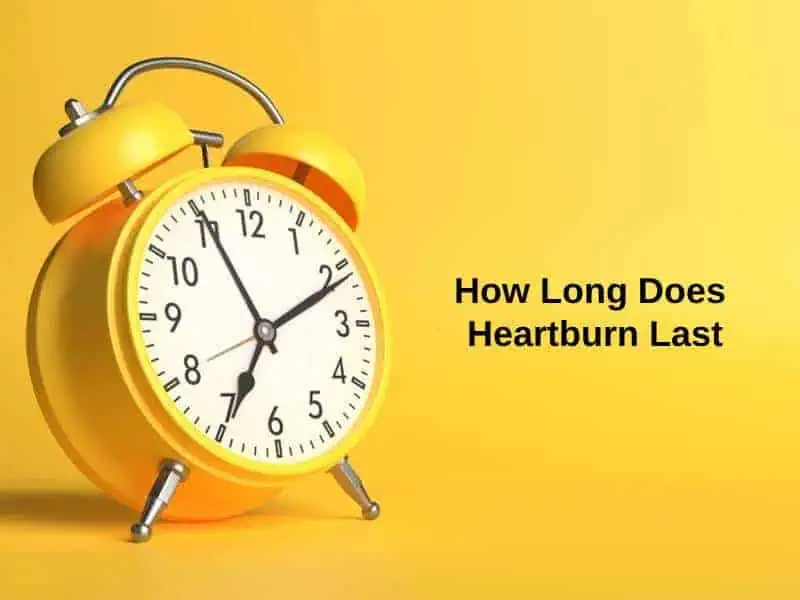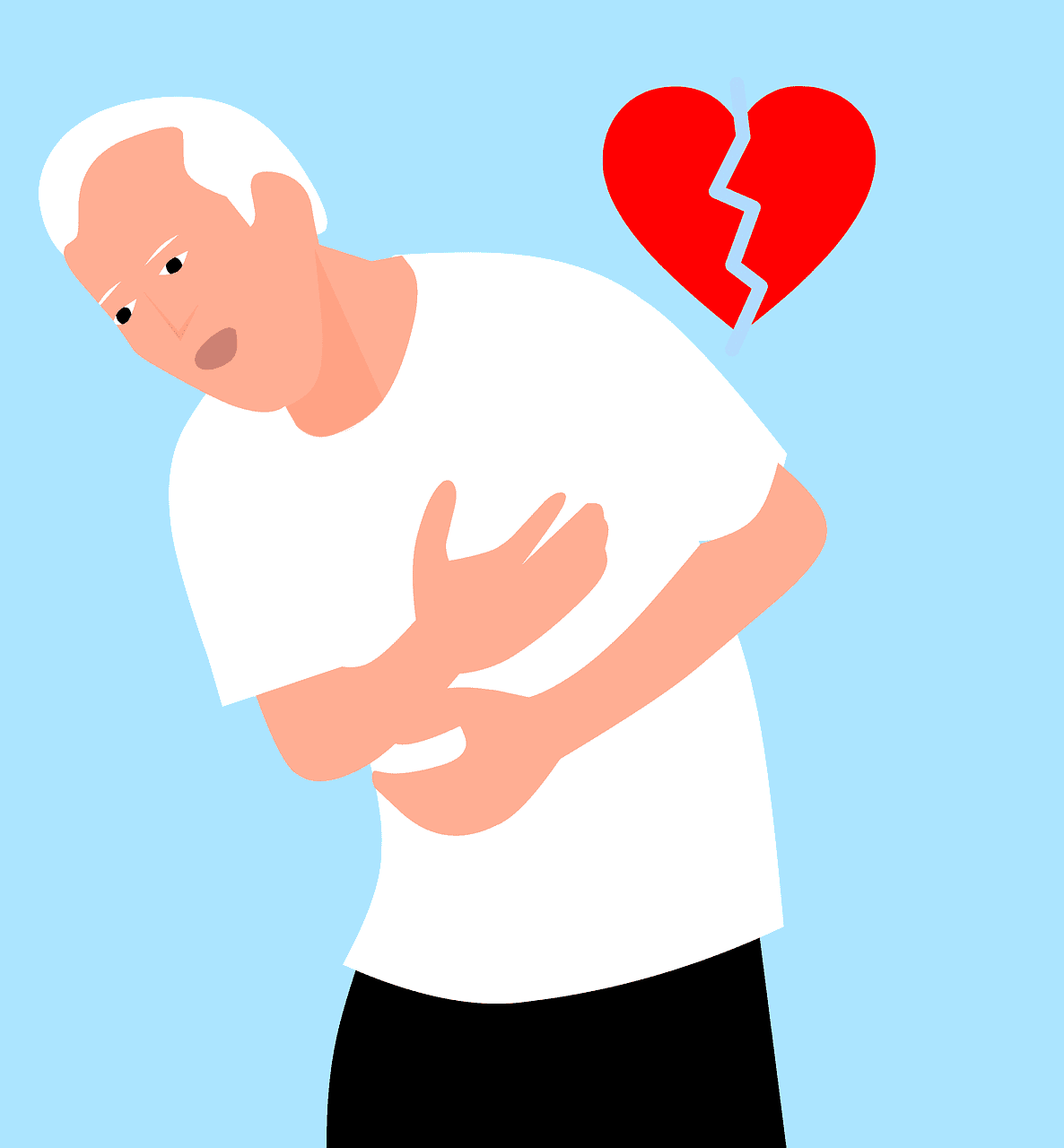Exact Answer: 2 Minutes to 2 Hours
Heartburn is irritability of the esophagus that is the tubing that attaches our throat to our stomach. Mainly caused by the acids present in the stomach which leads to a burning sensation or discomfort in our upper belly or below the sternum. Despite its name, heartburn has nothing related to the heart. But some of the symptoms might be close to that of a heart attack or heart disorder.

How Long Does Heartburn Last?
If someone got a burning sensation in their chest just behind the sternum that begins after you eat, it might be heartburn. The uncomfortable signs of heartburn last for two hours or even longer, depending on the situation. Heartburn begins when the acids in the stomach splash up to the esophagus. Moderate heartburn that occurs after eating spicy food lasts until the food undergoes digestion.
The symptoms of heartburn might also return several hours after they first appeared if you bend over or lie down. Informing the doctor about these symptoms is all they require to make a diagnosis of heartburn. Though, they might ask to take special tests to get how severe the problem is or to keep an eye on your treatment.
Chest pain is an example of one of the most frequent reasons to move to the emergency room. While many of these people have angina or a heart attack, some groups may have very severe heartburn.
Usually, the pain from angina, a heart attack, or a severe heartburn experience is so tough to explain alone that doctors need sophisticated tests to figure out what’s going on. Just to complicate it more, angina or any heart disorder or heartburn shares the risk factors of being aged or overweight.

| Types Of Acid Reflux | Duration |
| Heartburn | 2 Minutes to 2 Hours |
| Acid Reflux | Few weeks |
| GERD (Chronic) | More than twice a week or Several months |
Why Would Heartburn Last That Long?
Heartburn symptoms can begin because of an issue with a muscular valve named LES or Lower Esophageal Sphincter, located at the meeting point of the esophagus and the stomach below the rib cage and slightly left to the center.
Usually, the LES keeps the acid in the stomach. When it’s functioning correctly, the LES opens to allow food into the stomach, then closes again. But if the LES opens far too or does not close tight sufficiently, stomach acids can seep into the esophagus and cause burning or irritation.
Also, if the LES loosens or weakens, stomach acid might seep back up into the esophagus, also called acid reflux, and cause heartburn. The acid reflux can be even worse when one is bent over or lying down.
Heartburn that occurs occasionally and interrupts our routine is called Gastroesophageal Reflux Disease Or GERD. GERD treatment may need prescription medicines and, infrequently, surgery. GERD can severely harm the esophagus or direct to pre-cancerous alterations in the esophagus, which is called Barrett’s esophagus.

If the LES does not stay tightened as it should be, there are two elements that add to the problem. First is overeating, which puts excessive food in the stomach, and second is too much pressure on the stomach, mainly due to obesity or pregnancy. Some foods can ease the LES or raise stomach acids, including tomatoes, citrus fruits, garlic, onions, or caffeinated items.
Meals high in fats and oils frequently lead to heartburn, so do some medications. Stress and sleeplessness can increase the acid in the stomach and can create heartburn. In the case of a pregnant woman, the hormone progesterone can help relax their LES and might lead to heartburn. Smoking also does the same and raises stomach acid.
Conclusion
Infrequent heartburn is not abnormal and reacts to at-home remedies, such as taking OTC medication. Lifestyle adjustments, such as avoiding specific foods and losing weight, might also help. Heartburn through pregnancy is very obvious. This type of heartburn might also respond to at-home remedies. If someone is pregnant, they should speak to their doctor before using medication.
If someone is frequently encountering heartburn more than twice a week, or it is conflicting with their life, they should discuss it with their doctor. They can help them recognize an underlying problem and suggest appropriate treatment. One must inquire about urgent help if they experience severe chest pain or pressure, particularly when linked with other signs and symptoms such as pain in the arm, jaw, or difficulty breathing. Chest pain might also be a symptom of a heart attack.
One should set an appointment with their doctor if the heartburn occurs more than twice a week or the symptoms persist despite the use of strong medications, having difficulty swallowing food, persistent nausea, have weight loss due to inadequate appetite, or difficulty eating